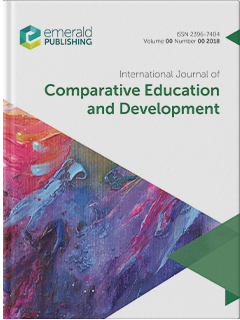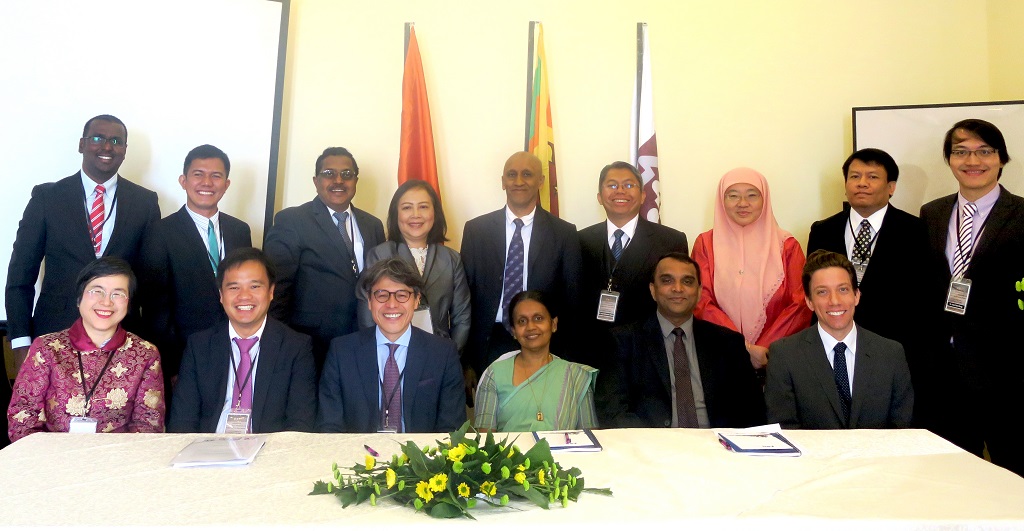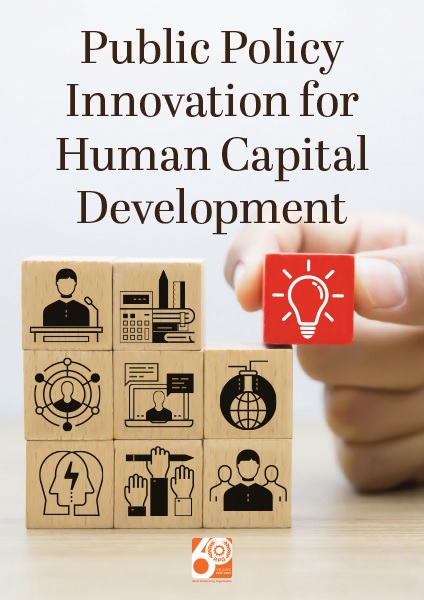Jim Williams, Yuto Kitamura, and I have a new article out in the International Journal of Comparative Education and Development. The article is titled “Measuring what matters? mapping higher education internationalization in the Asia–Pacific.” In the piece, we look at the indicators of internationalization used by UNESCO Institute of Statistics and in some Asia-Pacific countries. We found that indicators of higher education internationalization are, almost entirely, focused on student mobility. This is interesting because most generic definitions of internationalization see the phenomena in much bigger terms.
New co-edited volume on human capital
Yuto Kitamura and I co-edited a volume called Public Policy Innovations for Human Capital Development for the Asian Productivity Organization, which is an international organization based in Tokyo. The project started in 2017 with a coordination meeting in Sri Lanka. There we met representatives from 11 countries across Asia (see photo at left). Over the next two years, we worked with teams to undertake case studies in each country.
The final book includes 6 country case studies, including from the Republic of China, India, Indonesia, Malaysia, Philippines, and Sri Lanka. Yuto and I argued in our introduction that the climate crisis is not compatible with economic growth. Since human capital theory aims to increase economic growth, we argued that the very idea of human capital needs to be re-thought. The country case studies then provided a starting point for re-thinking human capital development. We see this as a first step in trying to re-articulate human capital theory in ways that acknowledge the climate emergency.
Research highlighted in news article
An article in Cambodianess, a relatively new English language daily in Cambodia (part of the Khmer paper called ThmeyThmey), focused on bribery and Covid-19 featured an extended interview with me about my new book, Cambodia for Sale. Here’s a quote from the piece, but I recommend reading the full article:
Again, Brehm reiterated that the line between bribery and community support blurs, but that one explanation for the prevalence of such informal payments could be Cambodia’s history. While neoliberalism became the consensus for the US and other Western governments providing official development aid, Cambodia was just emerging from conflict.
My book comes out March 30, 2021. Stay tuned for more information about the book launch.
Japan Educational Research Association Webinar
I was invited to record a talk for the JERA webinar on education and Covid-19, which was held on July 31. The webinar (in Japanese) was recorded where you can hear my thoughts (in English) about the current situation. Some 150 people attended the event live.
“What’s the French Revolution but a riot blessed by history?”
New blog post for CEID
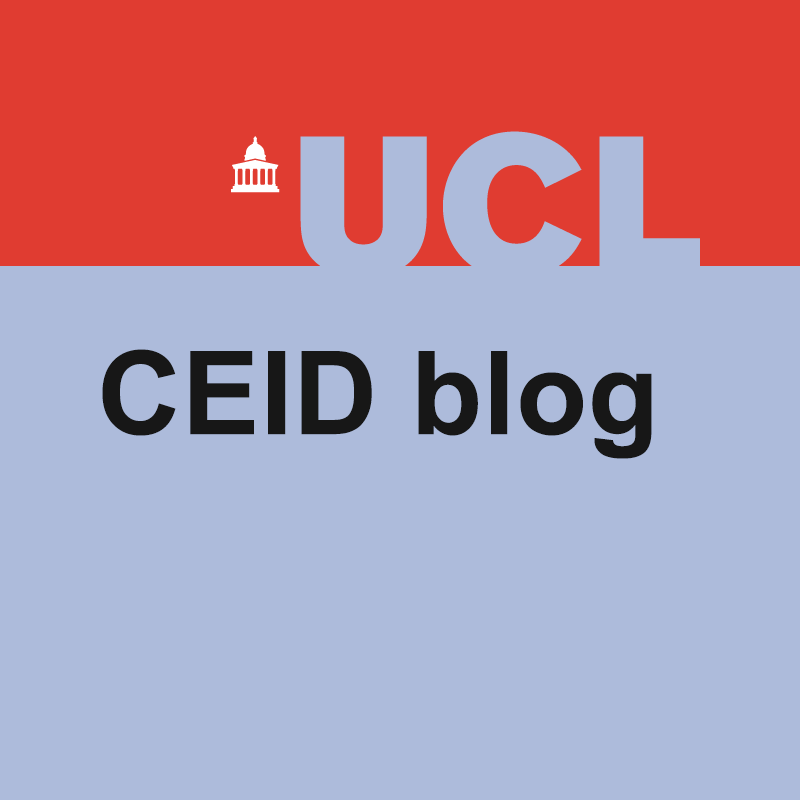
At the UCL Institute of Education, I’m a member of the Centre for Education and International Development (CEID). When COVID-19 forced the university to move its work online, CEID responded by starting a new blog entitled “Education in the Time of COVID-19.” It’s a space for academics, students and practitioners to reflect on education broadly defined during the pandemic. What is happening to schools and students in different parts of the world? How can we make sense of the meaning of education or situate our current crisis in a longer history? How should we respond to new educational challenges during the pandemic?
I wrote a blog post for the series arguing we are experiencing a “switch point” where things will inevitably change. Exactly how is uncertain and will be up to us to sort through and manage the aftermath of what for many has felt like whiplash. But these changes, I warn, might not be totally positive. The World Bank might return to Structural Adjustment Policies of yesteryear; digital learning companies might exploit the shift to online education for their own profit. To me, the struggle is summed up between two opposing sides: on one side is a socialist utopia of mutual aid societies and the other is authoritarian capitalism. Which way the world ends up will be determined by our collective actions taken during lockdown.
Blog submissions are open to anyone in and outside of UCL. We are interested in diverse perspectives on education in our current moment. If you are interested in submitting a blog post or have an idea you’d like to share, please get in touch with me.
Troubling CIES: Some Provocative Thoughts
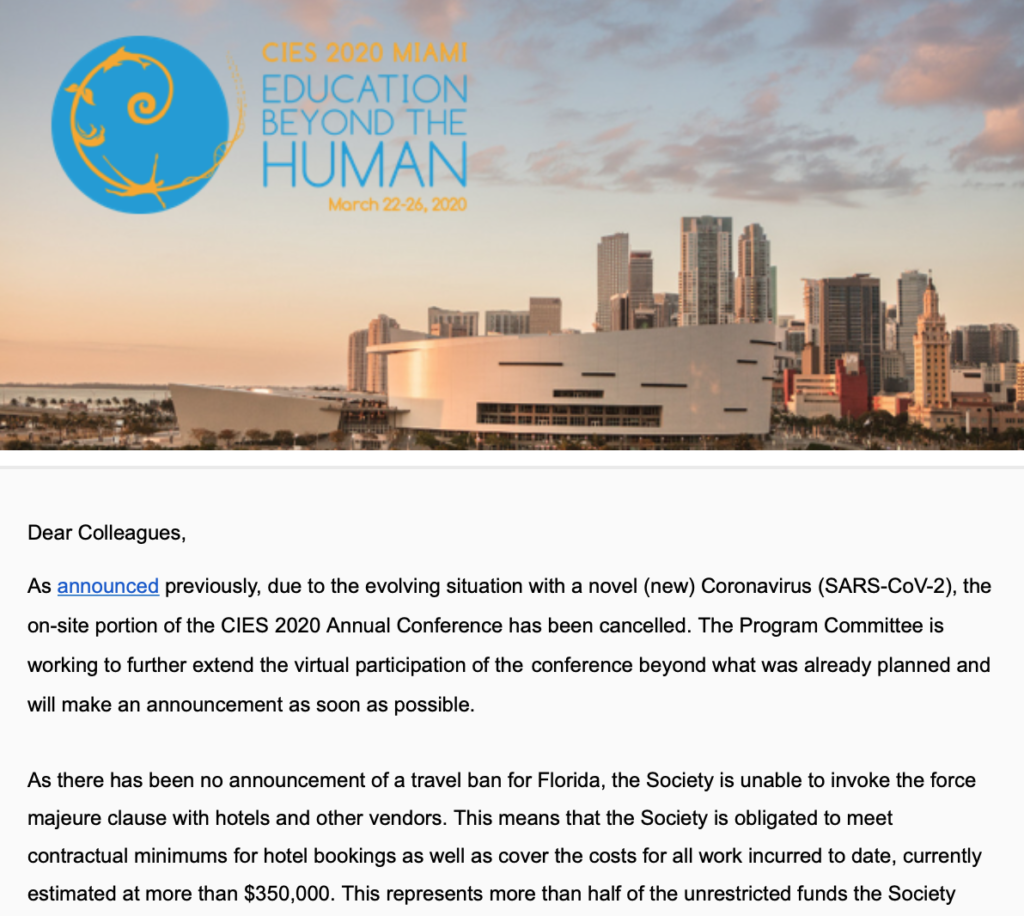
Covid-19 has caused the cancelation of countless meetings, conferences, and public gatherings. This has undoubtedly helped to reduce the spread of the virus by encouraging social distancing and stopping super-spreaders. The second order of business is to determine what these canceled meetings and conferences mean in financial terms. Large amounts of money inevitably will be lost, but the burden will not be equitably shared. Apropos to global economic inequality, it seems corporations will fare much better than the individual. Let’s look at the case of the Comparative and International Education Society (CIES) for some insight into this secondary issue.
Continue readingSpotlighted by NORRAG
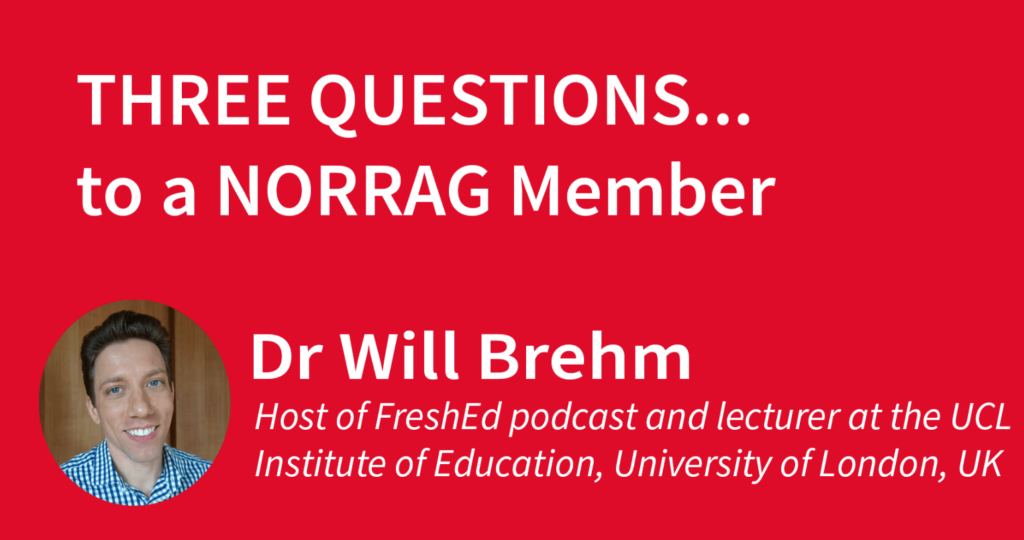
NORRAG, the network for international policies cooperation in education and training, featured me in its ‘three questions’ series. The series is self-explanatory — a NORRAG member is asked three questions. I was asked about my recent move to London as well as the new partnership between FreshEd and NORRAG. The partnership will make possible three FreshEd Live events in 2020 as well as the translation of 10 episodes into French. I am thrilled FreshEd has the support of NORRAG. NORRAG is a fantastic resource in the field of education and international development. They produce important research and hold timely meetings. I highly recommend becoming a member if you are at all interested in international development.
Excerpt of FreshEd Interview Published
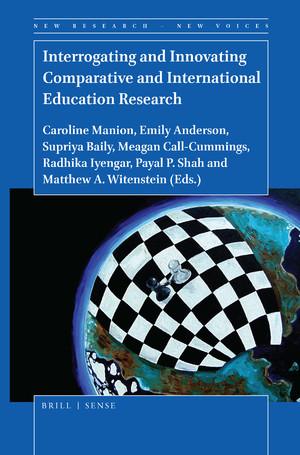
In 2017, I interviewed a selection of speakers who were slated to present at the CIES Fall Symposium. One of the speakers was Patricia Parker, who is a professor at UNC. Patrica recently wrote a book chapter that contains an excerpt of our conversation. The book is Interrogating and Innovating Comparative and International Education Research, which was edited by Caroline Manion, Emily Anderson, Supriya Baily, Meagan Call-Cummings, Radhika Iyengar, Payal P. Shah and Matthew A. Witenstein and published by Brill in December 2019. Here’s the abstract of Patricia’s chapter:
Participants at the Fall 2017 CIES Symposium engaged in provocative conversations about the ideas, problematics, and opportunities for creating academic and community spaces that challenge existing power-knowledge dynamics in research. This chapter summarizes my contributions to some of those conversations, drawn from prepared and extemporaneous remarks during the Plenary on Intersectionality and Research, as well as excerpts from a pre-symposium interview I did with Freshedx host, Will Brehm. Three key claims are developed in the chapter: (a) intersectionality is a necessary framework for enabling the creation and sustainability of decolonized spaces; (b) the university is a colonizing space that is simultaneously (and historically) a site for progressive transformation; and (c) decolonizing research involving academics and people in vulnerable communities that destabilizes and transforms knowledge hierarchies is possible, but requires commitments to decolonial participatory principles. The chapter concludes with a discussion of the Graduate Certificate in Participatory Research at the University of North Carolina at Chapel Hill as one example of what is possible in pursuing intersectionality in the co-creation of knowledge and decolonizing research as well as the academy itself.
The Japanese Political Economy
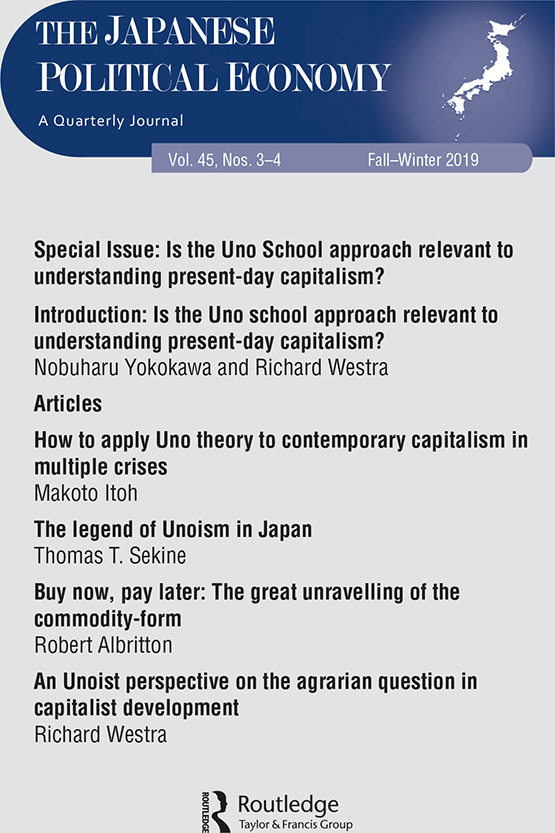
It’s an honor to be named a member of the editorial board of The Japanese Political Economy, a journal edited by Nobuharu Yokokawa. The journal has a long history in Japan, dating to 1972 when it was called Japanese Economic Studies. The Editorial Board brings together some great people, including Diane Elson, David Harvey, and Makoto Itoh (among others). Here’s a short quote from the website detailing the scope and aims of the journal:
Japan is an important laboratory for developing and debating ideas about capitalism and its dynamics. The Japanese Political Economy approaches the study of political economy and Japanese economy and its international relations. The journal is a resource for scholars, students, policymakers and practitioners who seek to better understand the contemporary and historical, transnational and internal processes of change in the Japanese and wider Asian economy. It publishes a broad range of scholarship that draws from multiple theoretical, empirical and methodological perspectives.
JPE organizes yearly workshops. I found these to be some of the most stimulating academic gatherings. In 2018, I interviewed Saskia Sassen at the workshop. You can listen to our conversation here. If you write on political economy please do consider submitting to the journal!

